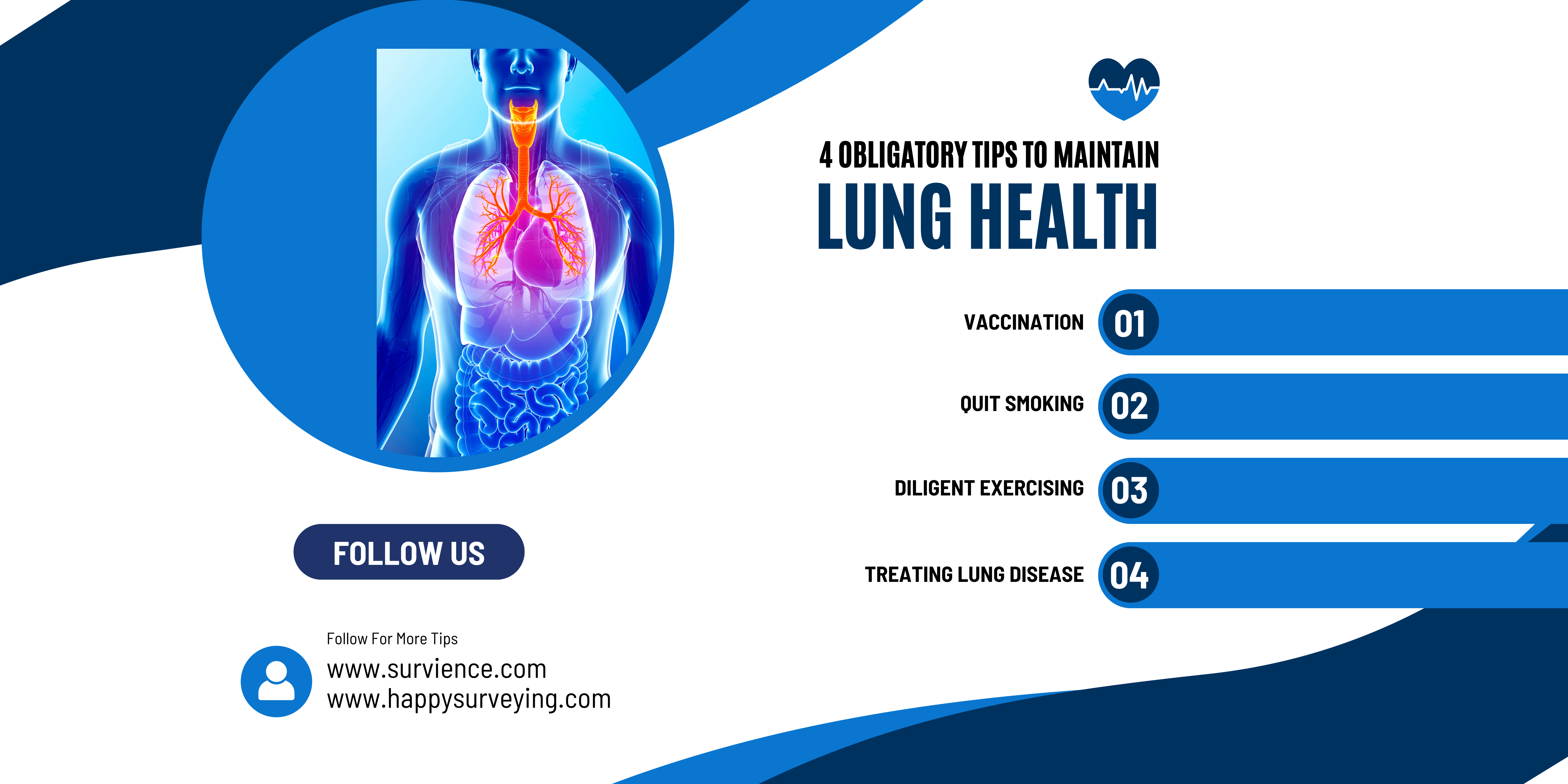How to Make the Most of Lung Cancer Awareness Month
How to Make the Most of Lung Cancer Awareness Month

The Significance of Lung Cancer Awareness Month
Lung cancer remains a major public health concern worldwide, causing significant morbidity and mortality. It is estimated that lung cancer accounts for nearly 20% of all cancer deaths globally, making it the leading cause of cancer-related deaths. According to the statistics mentioned earlier, lung cancer is responsible for a large number of deaths in both developed and developing countries. November has been designated as Lung Cancer Awareness Month to address this issue, aiming to raise awareness about lung cancer prevention, early detection, and available treatment options. During this month, various organizations and healthcare professionals collaborate to educate the public about the risk factors associated with lung cancer, such as smoking, exposure to second-hand smoke, environmental pollutants, occupational hazards, and genetic factors (Munkhjargal et al., 2023). Through educational campaigns, fundraising events, and community outreach programs, Lung Cancer Awareness Month strives to promote healthy lifestyle choices and encourage individuals to seek timely medical intervention if they experience any symptoms or risk factors associated with lung cancer. This annual observance is not only a reminder of the significant impact of lung cancer but also an opportunity to educate, inspire, and empower individuals to make a difference. In this blog, we'll delve into the significance of Lung Cancer Awareness Month, the importance of early detection, personal stories of survivors, insights from senior cancer doctors, and the role of research organizations like Survience in amplifying the voices of lung cancer patients.
Munkhjargal, B., Kondo, K., Soejima, S., Tegshee, B., Takai, C., Kawakita, N., Toba, H., & Takizawa, H. (2023, April 5). Aberrant methylation of dipeptidyl peptidase‑like 6 as a potential prognostic biomarker for lung adenocarcinoma. https://scite.ai/reports/10.3892/ol.2023.13792
Understanding Lung Cancer:
Before delving into the importance of Lung Cancer Awareness Month, it's essential to have a basic understanding of lung cancer itself. Lung cancer is a malignant tumor that begins in the cells of the lungs. It is the second most common cancer in both men and women and is responsible for more deaths than any other cancer.
Type of Lung Cancer
Non-Small Cell Lung Cancer (NSCLC)
This is the most common type of lung cancer, accounting for approximately 85% of cases. NSCLC typically grows more slowly and is divided into subtypes, including adenocarcinoma, squamous cell carcinoma, and large cell carcinoma.
Small Cell Lung Cancer (SCLC)
SCLC is less common but tends to grow and spread more quickly than NSCLC. It is often associated with a history of smoking.
Risk Factors:
Smoking: Cigarette smoking is the leading cause of lung cancer. Even exposure to second-hand smoke can increase the risk. Environmental Factors: Exposure to radon gas, asbestos, air pollution, and certain chemicals can contribute to lung cancer. Family History: A family history of lung cancer may also elevate the risk.
Symptoms:
Common symptoms of lung cancer may include a persistent cough, coughing up blood, chest pain, hoarseness, unexplained weight loss, and difficulty breathing. However, in its early stages, lung cancer may not exhibit any noticeable symptoms, highlighting the importance of early detection.
Treatment Options:
The treatment for lung cancer depends on the type, stage, and overall health of the patient. Treatment options may include surgery, chemotherapy, radiation therapy, targeted therapy,
Early Detection: The Best Remedy
Lung cancer is notorious for often being diagnosed in its later stages when treatment options may be limited, and the prognosis is less favorable. This is why the role of early detection cannot be emphasized enough.

Improved Survival Rates:
One of the most compelling reasons for early detection is the significant impact it has on survival rates. Studies have shown that when lung cancer is detected at an early, localized stage, the five-year survival rate can be as high as 60-70%. However, when the cancer has already spread to distant organs, the five-year survival rate drops to a mere 6%. Early detection can be the difference between life and death for those at risk of developing lung cancer.
Insights from Senior Lung Cancer Doctors
The expertise of senior oncologists and cancer specialists is invaluable in the fight against lung cancer. These medical professionals work tirelessly to provide the best care and treatment options for lung cancer patients. Their commitment to the cause is a testament to the progress being made in the field of oncology.
Lung cancer patients are tolerating treatment and living much longer than in the past, in great part due to the introduction of immunotherapy about five years ago. Immunotherapy is a completely different modality to treat cancer and it has changed how these patients can respond to treatment. Immunotherapy uses the patient’s immune system to fight the cancer. Often, these patients do not have the severe side effects of chemotherapy, which can be worse than the disease itself. I’ve seen metastatic lung cancer who are living three or four years, which we haven’t seen before. It’s a significant change in the way we treat patients.
Lung cancer is a complex disease, but we have made significant progress in recent years in terms of diagnosis and treatment. Today more lung cancer patients than ever before are surviving their disease."
Warriors: Lung Cancer Survivor Stories
My husband was diagnosed with lung cancer a few years ago. It was a devastating blow, but we were determined to beat it. He had surgery and chemotherapy, and he is now cancer-free. We are so grateful for the support of our family and friends, and for the doctors and nurses who helped us through this difficult time.
SusanI'm a lung cancer survivor. I was diagnosed a few years ago, but I'm now in remission. I'm sharing my story to encourage others to get screened for lung cancer early. It could save your life.
Evelin
Survience: A Beacon of Hope
Survience is a Market Research and Consulting firm dedicated to bringing out the true voices of patients affected with various life-threatening diseases. We enable a bridge between patients and researchers, capturing opinions and experiences through different methodologies of research data collection. By participating with Survience, in our survey initiatives, patients and caregivers have the opportunity to share their experiences, concerns, and ideas directly with researchers and companies. Your participation can make a significant impact by ensuring that the voices of patients reach the right researchers, leading to advancements in diagnosis, treatment, and support. Lung Cancer Awareness Month is an opportunity for all of us to come together, raise awareness, and take action. Whether it's through early detection, sharing personal stories, seeking expert guidance, or supporting research organizations like Survience, each of us can make a significant contribution to the fight against lung cancer. Let's honor this month by participating in awareness events, spreading knowledge, and supporting the countless individuals who are battling lung cancer with unwavering strength and resilience. Together, we can make a difference in the lives of those affected by lung cancer and bring hope for a brighter, cancer-free future.
I was diagnosed with lung cancer at the age of 45. I was shocked and scared, but I knew I had to fight. I had surgery to remove the tumor, followed by radiation and chemotherapy. It was a tough journey, but I made it. I'm now in remission and living my life to the fullest.
Guadalupe